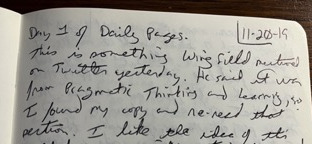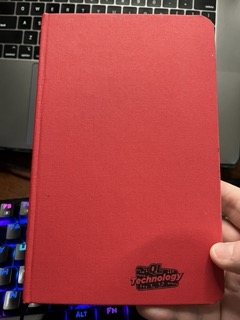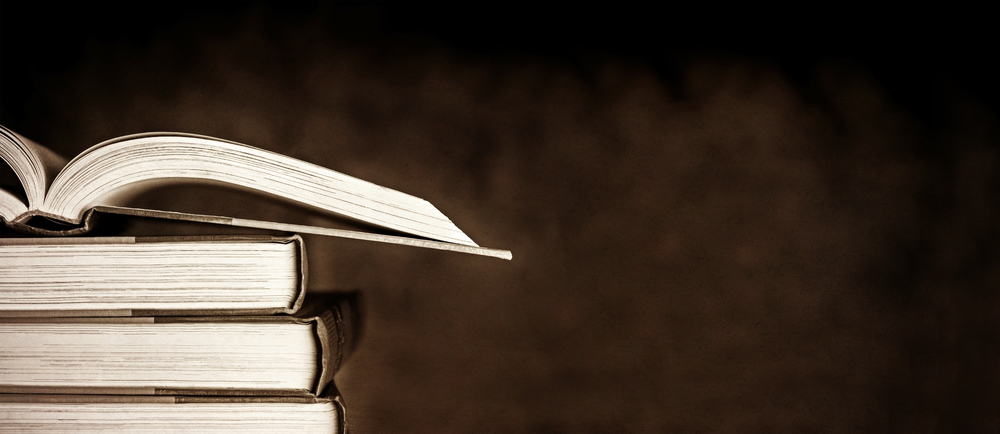Thoughts on journaling: Answering common questions
Leonardo Da Vinci kept a journal. So did Edison, Dostoyevsky, Jefferson, and Adams. Marie Curie kept one. Darwin, Twain, and Einstein also kept journals. It’s tough to talk about journaling without mentioning Anne Frank. And who can forget Marcus Aurelius and his Meditations?
I have been journaling daily since November 20, 2019, and have written thousands of pages across 16 or 17 volumes. The only times I purposely have missed writing have been while I was sick, or out in the backcountry backpacking with friends where ounces equal pounds, and where I knew I’d be too tired to write anyway.
Before getting serious about daily writing, I would write a little here, and a little there. Sometimes I’d go days or weeks without writing anything, so some of my older journals span multiple years. Then, in 2019, I was talking to my friend Tim about writing, and he mentioned how he had been doing “daily pages.” Daily pages? What the hell are daily pages?
Tim explained that every morning he’d sit down and try to write three pages. It didn’t matter what he wrote, just that he wrote three pages of whatever came to mind. This idea fascinated me because I knew I wanted to write more. On November 20, 2019, I highlighted the entry with “Day 1 of Daily Pages” and knocked out three pages and haven’t looked back.

Here’s what that scribbled mess says:
This is something Wingfield mentioned on Twitter yesterday. He said it was from Pragmatic Thinking and Learning, so I found my copy and re-read that section. I like the idea of this method…
When people find out I journal, they tend to ask the same few questions, so this is my attempt at answering those questions, and maybe it will inspire you to start journaling.
Why do you journal?
It’s a form of therapy for me. It allows me to get thoughts out of my head without burdening friends or family. It also allows me to clarify my thoughts on deeper topics.
Not only is it therapeutic, but it is also meditative. I love the act of opening the journal, flipping through the pages, uncapping my pen, writing the date, and then letting the words flow.
I believe journaling has done more for my mental health than almost anything else, except maybe my trips to the wilderness with friends.
So wait, you write on paper? With a pen?
Yes, and I love it.
In 2019, I had an extra Moleskine laying around, so I used it. When January 1 hit, I had a large stack of unused journals to choose from so I picked one that was a gift from a former employer; a Shinola hard-cover, lined notebook.

I filled 15 more of these notebooks before recently making a switch. Our local Shinola store closed last year, and with shipping, they were approaching $30 each. I also couldn’t get the embossing I wanted when ordering online, so I started looking for a suitable replacement.

I’m currently using notebooks shipped from Malaysia. The high-quality paper is perfect for the pens and ink I use. They also have more pages than the Shinola books I was using which means I potentially use fewer of them throughout the year. They aren’t hard-cover, but I found a nice cloth cover to help reduce damage when I throw the journal in my bag.

Don’t let that picture fool you, the cover is a rich orange, not brown.
But you’re in technology - why not a technical solution?
I tried everything from a plain text file to OneNote to EverNote and nothing fit with how I wanted to work. I think the closest thing was jrnl, but it still had its downsides. I don’t like being tied to a laptop or PC. I want to be able to write when I want, and not worry about having to set everything up.
I also love the feel of a pen on paper. I love seeing the pages fill up. I love seeing where I scribbled over words I fucked up. I love being able to emphasize something by underlining it. I can tell by my handwriting when I was stressed, or when I was angry.
It’s hard to pull that kind of information from an underlined word in a document you typed. While you may have vigorously typed Ctrl-U or Ctrl-B in Microsoft Word, that emotion doesn’t come across on the page.
When do you write?
I write daily, and I try to start in the morning. For a long time, I’d get up early, shower, dress, and then head to the kitchen table. It was away from the distractions of my computers, and it allowed me to focus on nothing but writing.
That has changed, and now I tend to write at my desk. I still try to start in the morning, but most of my journal writing takes place in the evening, typically right before bed.
Why the change from the morning to the evening?
My mornings are consumed by another kind of writing, the kind that produced this post. I find that I’m most creative first thing in the morning, so I’d rather use that energy for articles and blog posts. My journaling habit is strong, so I know I’ll get it done at some point during the day.
What do you write about?
It depends.
When I first started, I would just write whatever came to mind. I had no plan. Sometimes it was pure nonsense. I quickly fell into the habit where I wrote a page about what I did yesterday and a page or two on what my plans were for the day and any random thoughts. In those early days, I tried to list the highlights of each day. These were one-liners; had a call with my Aunt Helen, hung out with friends, etc.
There was a point when I started expanding those highlights and writing about one thing I was grateful for every day. Eventually, that turned into a full page. There have been periods where I’ve stopped doing it, and I notice it. I notice a change in my attitude when I’m not focused on gratitude each day, so I don’t let it go for too long before I start writing that page again.
Many times I’ve started a journaling session with a specific question in mind. I’ve written pages and pages on deeper topics, trying to figure out why I believe X to be true or false. How did I develop a particular belief? I will attempt to take both sides of a position to make sure that my belief in X isn’t misplaced. These kinds of writings take a lot of energy and thought, and sometimes it takes multiple sessions to get down to the nitty-gritty.
I’ve written many pages on my political beliefs. I’ve written a lot on things like death and dying - not in a morbid way, but simply to help come to terms with my mortality, especially now that I have more years behind me than ahead.
I write about the mundane things in life; things going on at work and home, but the one thing that stays out of my daily journals is technical topics - I have a different journal for that.
I write about things I’m looking forward to or about books I’m reading. I write about things that annoy me, and things that make me happy.
So yea, it depends.
As for quantity, I now average three to four pages per day. Last year, I filled six volumes for a total of 1054 pages. That comes out to just under three pages per day. There are days I’ll write five or more pages, sometimes up to ten, but my goal is three.

A whole page on gratitude? How?
Once you start building the gratitude muscle, it’s easy. When I first started, I would try to write one thing I was grateful for. Some days were harder than others. Now I can generate a whole page with no problems because it’s easy to find things I’m grateful for like the warm sunny day we had, or the fact that I finished another book, or that one of our cats had a good visit to the vet. It’s not difficult once you get started.
I have had people ask if I’m willing to share more, and while some of my friends like to post their daily gratitude, it’s a very personal thing for me, and I’m not willing to share.
I have a separate post planned just for this topic, so stay tuned!
How do you find time to write?
As with anything else in life, if you truly want to do something, you’ll find the time. I make writing a priority, whether it’s journaling, or writing articles for my blog. The same goes for sleep. I prioritize sleep above many other things because I like to be well-rested each day. Being well-rested means I can get up early and write. Both are important to me and thankfully, both feed into the same thing.
There have been days where I’ve forgotten to write because I’ve been busy with friends or family. If I catch myself before midnight, I’ll make sure I write at least a page!
Do you ever go back and re-read what you’ve written?
I just read some nonsense “masterclass” article that says you should never go back and read your journals. Bullshit! There is value in what I write or else I wouldn’t have written it.
So yes, often. Some periods are more interesting to revisit than others, for example, the first year of the pandemic when we all had to deal with lockdowns, daily death counts, and lots of uncertainty. That’s interesting reading for sure.
I also like to revisit the deeper topics to see if my opinions have changed.
Will you ever share what you’ve written?
Not publicly. Sure, some thoughts have been clarified in my journals enough to bubble up to become articles, but the raw writing I do is private. While much of it is innocuous, it’s also rambling at times. It can be profane and offensive, and could also be hurtful to others.
You mentioned a separate technical journal
Late last year, when I started a new job, I decided to start keeping a developer journal. It’s filled with specifics of what I’m working on, decisions I’ve made, questions I have, diagrams, definitions, and anything related to the features I’m developing.
I hope that as I build my developer journal up, it’ll help in future tasks, or if nothing else, if someone asks about something I did six months ago, I’ll be able to tell them what I did, and why I did it.
Where do you keep them?
On a shelf in my office.
One of my friends was shocked to find out I leave them out. She asked if I was concerned about my wife or kids reading them. First, I don’t necessarily think I’ve written anything I’d be worried about, but I also trust my family. Sure, they are on a shelf, but everyone knows what they are, and they understand how important it is for me to get my thoughts out on paper every day.
I do understand that some people have trust issues and wouldn’t be comfortable leaving them out, but that’s not my world.
What happens to them when you die?
I currently have no written directions on what should be done to them when I’m gone, so at this point, whatever my family wants. I may give it some more thought and give explicit instructions, but for now, I have no plans, and they can do with them as they please.
Final thoughts
I hope this was helpful.
Journaling has done wonders for my mental health, but I understand it’s not for everyone. It takes time and effort. I spend a lot of time reading and thinking, and once I started journaling, it became a habit that I can’t imagine ever quitting.





Comments